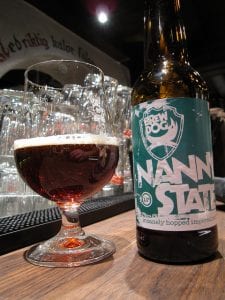By Prof John Coggon, Professor of Law (University of Bristol Law School)

Debates on alcohol policy are necessarily complex and controversial, and a complete consensus on how we should regulate this area will not be achieved. Like other lawful but regulated products, alcohol presents benefits and harms that may be understood from ranging perspectives. These include views based in cultural, economic, ethical, historical, legal, medical, population-based, religious, and social understandings. Of necessity, outlooks on alcohol policy and the role of regulation therefore vary both within and across such differing sources of critique. The values—positive and negative—of alcohol at individual, familial, community, commercial, and population levels thus call for careful, reasoned, and respectful public debates.
Even within the context of public health analysis, we cannot just look to scientific studies to inform and determine policy: we are required to consider forms of ‘evidence’ from different disciplines and sectors. This is well explained in a recent publication by the Health Foundation, with papers applied to child obesity but with lessons that are generalisable across health policy. However, for many working in public health, or members of wider communities who have interests in what makes good health policy, challenges emerge in relation to the conduct of public debates: often care, reason, and respect are replaced by simplistic slurs and assertions. And in this context, accusations of nanny statism are a key and persistent example.
The nature of the nanny state debate and how we might respond to it are matters explored in a report that I recently wrote for the UK Faculty of Public Health on The Nanny State Debate: A Place Where Words Don’t Do Justice. Amongst its aims, the report serves to explain:
- The philosophical concerns that motivate principled arguments about nanny-statism;
- The poor logic of nanny state slurs that are, in reality, incoherent or arbitrary;
- The methods that we might use in public debates that are hampered by nanny state accusations.
At the level of principle, a nanny state critique of measures to regulate alcohol production, marketing, and consumption would be born of the idea that adults are autonomous decision makers. This means, so the argument goes, that adults are always best able to make their own choices because they always know best their own interests. Classically, where this gives rise to concerns about a nanny state it is because of a rejection of the legitimacy of coercive regulation to serve individuals’ own good: for example, a law that prohibits drinking because this is good for adults’ own health. However, in practice, such principled concerns are applied to ‘softer’ methods of regulation too: for example, we might find that nanny state claims are made that the government is treating adults like children when it issues advice on safe levels of drinking, or places curbs on advertising of alcohol, or limits the times at which it can be bought. Equally, we find principled concerns that such ‘soft’ measures will take us on a slippery slope to a more interventionist ‘nanny state’.
The strength of these arguments necessarily relates to the truth of their claims about autonomy. As Professor Vikki Entwistle and colleagues have argued, often regulation is necessary to promote freedom: nanny state accusations are made against policies that aim to protect people’s decision-making power in the face, for example, of vested (e.g. commercial) interests. We know too well that powerful organisations can impact people’s decision making: for example, through cynical manipulation of social media. In this sense, methods of response to nanny state accusations should include a more careful analysis of how and why a measure does, or does not, limit people’s freedom.
However, matters are complicated not only because it is not always easy to make such reasoned argument in public fora. They are problematic too because many nanny state claims are not even on their own terms principled. A cry of nanny state often does not make sense on its own terms, or is made where there is no logical connection to ‘nannying’ at all. Where this happens, the public discourse is hampered by an extremely powerful rhetorical impact: a nanny state slur undermines reasoned argument, and leaves a policy tarnished by a slogan that people take by definition to represent a problem or hint at illegitimate action.
In these instances, we might look to further methods of response. We might, for example, respond by exposing more forcefully the hypocrisies and hidden interests behind the cynical claims of nanny statism. In doing this, it is important not to lose sight of remaining committed to evidence and reason. But our communications will make clearer both why the nanny state claims should not be trusted, in terms that are clearly accessible and comprehensible. Or we might, for example, ‘reclaim’ the nannying label: explain openly why the matters that are being characterised as ‘nannying’ are values and practices that are good in society.
Overall, public health policy takes place in a public and political arena where soundbites and slurs have significant impact. Reducing arguments to simplistic—even incoherent—claims and accusations is not good for reasoned, public deliberation. It is, though, a useful way to avoid explaining yourself, or obscuring hidden interests and motivations. I hope that those who participate in debates on health policy and face problems in the shape of simplistic nanny state accusations might find use in the structured approach to understanding the nanny state that I have aimed to provide in the report. It is sadly ironic that often the person who cries ‘nanny’ in health debates is representing the most infantile approach to argument. A grown-up debate on health policy would lead to more respectful and inclusive outcomes, which benefits everyone participating in this dialogue.
—
This post was originally published on the Institute of Alcohol Studies blog.
